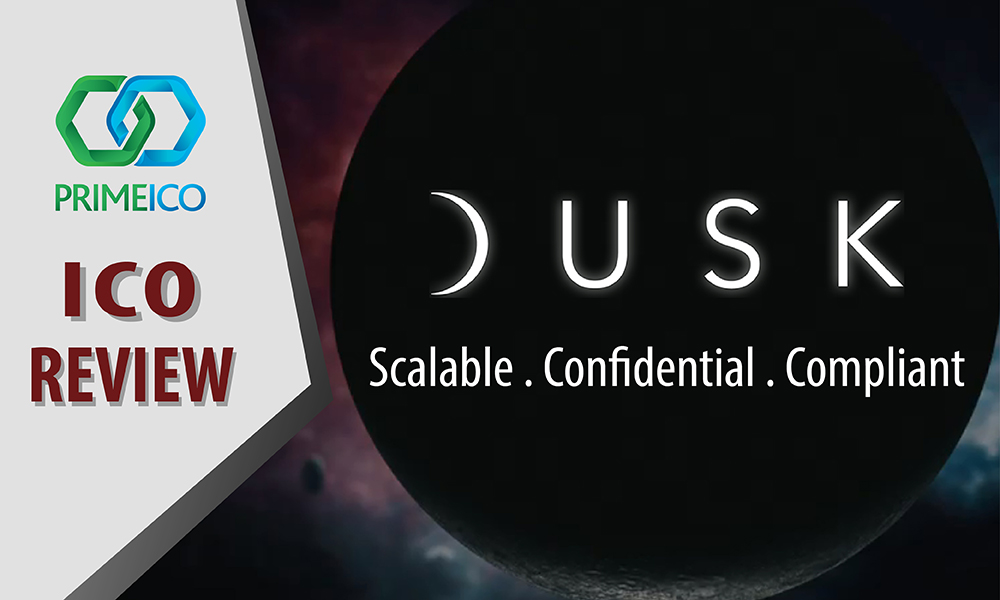
Overview
What does the company/project do?
The team around Dusk Network wants to build a decentralized infrastructure focussed on confidentiality. Dusk Network is a layer one protocol. However, it needs to be noted that Dusk Network does not represent a smart contract platform as it is for example the case with Ethereum, EOS or NEO. Instead, potential use cases of Dusk Network include anonymous data storage, messaging and communications, payments, and asset ownership transfers. To give an example, on top of Dusk Network third party developers will be able to build a decentralized, uncensorable version of popular messaging apps such as WhatsApp or Telegram. Furthermore, Dusk Network will enable decentralized versions of data storage applications such as Dropbox or Google Drive.
What are the tokens used for and how can the token value appreciate?
The native token of the Dusk Network will be called DUSK and it has the same functionality as Ethereum has in the Ethereum network.
Additionally Dusk Network is developing a new token standard on top of their network, that would allow the issuance of confidential security tokens. These tokens may then be compared to Ethereum’s ERC-20 tokens.
How advanced is the project?
Research regarding the concept of Dusk Network has started in late 2017. In the third quarter of 2018 Dusk Network underwent a private fundraising. In the last quarter of 2018 the team wants to release the devnet and the Dusk Network wallet, whereas the mainnet is planned to be released in 2019. Dusk Network is pursuing grants from the European Commission. Dusk Network so far has received substantial press coverage form new outlets such as Forbes or Venture Beat.
Team
Emanuele Francioni is the Project & Tech Lead of Dusk Network. He holds a Master of Engineering from University of Roma Tre. He has several years of experience as a software engineer at Tom Tom and he counts with previous entrepreneurial experience. Emanuele is supported by a broad team with skills in cryptography, blockchain development, UX/UI design, business development and communications.
Among the advisors of Dusk Network are James Roy Poulter, an investment banker, Aylon Morley, an investment consultant, Gary Quin, a senior advisor at Credit Suisse, Richard Sanders, co-founder at CipherBlade, an investigative cryptocurrency startup, Marcel Roelants from Bitpay and Nicolas Cimon, a consultant.
Product
The consensus mechanism used by Dusk Network is called Segregated Byzantine Agreement (SBA), which is an improvement of the practical Byzantine Fault Tolerant consensus mechanism. The SBA consensus mechanism counts with a number of advantages such as resilience against centralized pooling attempts and a solution for the nothing-at-stake problem in Proof of Stake consensus mechanisms. However, just as with every novel consensus mechanism that is not proven by the market under real world conditions significant risks do exist compared to established consensus mechanisms.
Strength and Opportunities
Dusk Network has a strong emphasis on compliance with regulatory agencies, in particularly the European Commission. This can provide additional security for developers who need to decide on which public blockchain they want to build their applications. Furthermore, Dusk Network does not want to be a solution to all problems that can be solved through blockchain technology. Instead the use cases of Dusk Network are neatly arranged which enables the team to finetune the product exactly for these use cases.
Weaknesses and Threats
There is a broad range of privacy focussed blockchain protocols who evolved in the last years since it is one of the main goals of blockchain technology to remove trusted third parties who store confidential data. At this point in time it is difficult to foresee which protocols will be adopted by the industry and represent the best fit for future integration into dominant public blockchain platforms. Furthermore, it is unclear whether a layer 1 protocol such as Dusk Network is best suited to fulfill this purpose or whether layer 2 protocols based on existing blockchains such as Ethereum are a better fit for the use cases Dusk Network wants to serve.
Dusk Network has not disclosed any private investors in the protocol. The success of layer 1 protocols often depends on the funds the project is able to secure. Without credible private investors who usually perform rigid due diligence analysis before investing Dusk Network will have a hard time convincing the crowds in the event of a public token sale.
Verdict
Dusk Network which is based out of the Netherlands is still at an early stage. The novelty of the approach and consensus mechanism of Dusk Network is promising. At the same time the protocol lacks validation since no famous blockchain venture capitalists have associated their name with the project nor does the project count with a proven product. The current market conditions for ICOs are demanding and Dusk Network needs a compelling story in order to catch the interest of a broader audience and to conduct a successful public token sale.
? URL: https://dusk.network/
? TG: https://t.me/DuskNetwork
For more updates, join our Telegram Channel, like our fanpage and follow us on Twitter. Hear about the most exciting ICOs before the hype hits.
* The information contained in this article is for education purpose only and not financial advice. Do your own research before making any investment decisions.


Leave a Reply